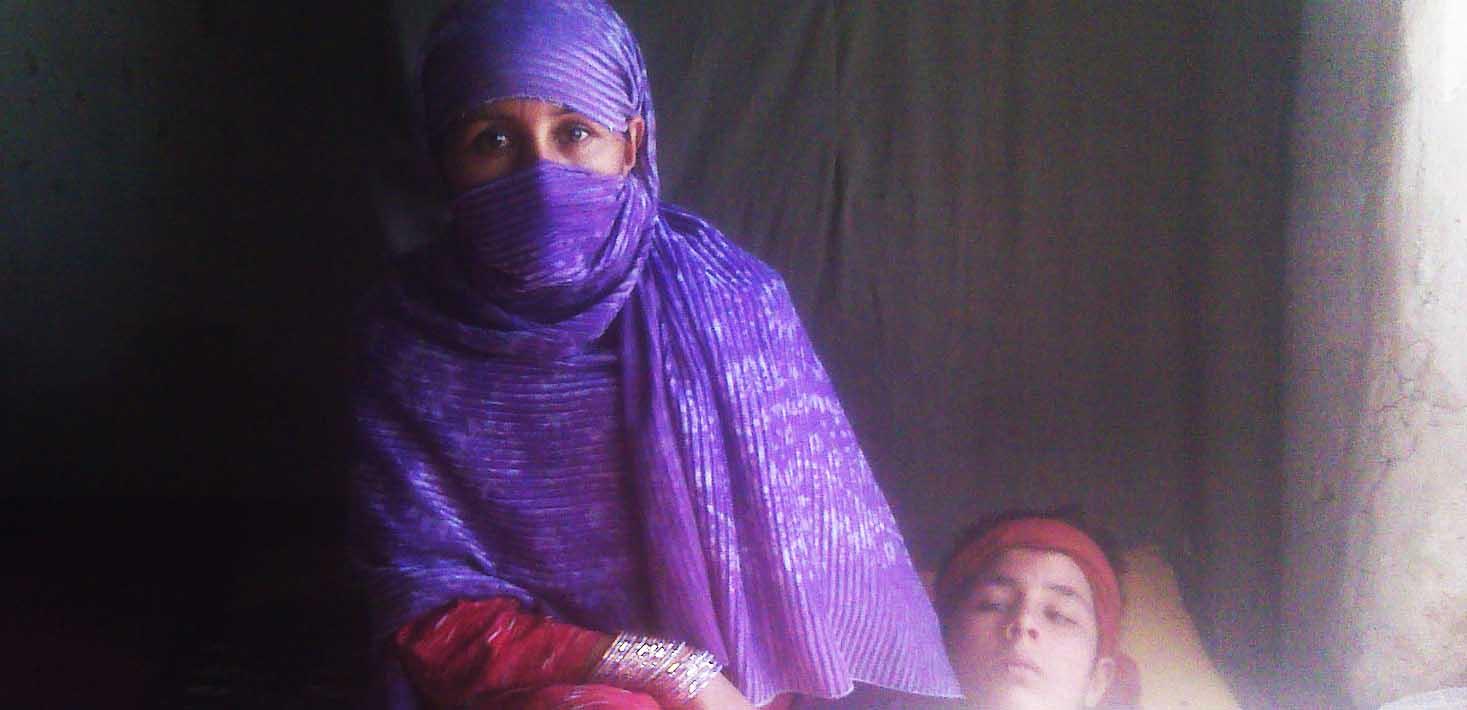Widows in War-Torn Afghanistan
Afghan woman and her son in Kabul, Afghanistan (Photo: Laura Lynch)
It has been almost a decade since US and coalition troops invaded the country, set on toppling Taliban rule and destroying al-Qaeda. Victory over the Taliban was swift.
But bringing peace to the war torn country has been a much more difficult challenge.
In some parts of Kabul, water is a luxury for people who have learned to live with so little.
On a hill in southeastern Kabul, children fill plastic jugs from a hose connected to an underground water supply. From here, they face a short hike up a steep, rocky hillside to carry the water to a unique community.
A Community of Widows
“There aren’t any advantages to living here, but I have to,” said 25-year-old Fawzia. She’s one of the newest residents. “I can’t afford to live downtown. And this house doesn’t have windows or doors. It’s not a proper home.”
Her home is a concrete block, perhaps six feet by four feet, overlooking a cemetery. The stench of raw sewage hangs in the air. There is no furniture, just some mattresses on the floor and a tattered old scenic photo of Kabul stuck to one wall.
Fawzia’s husband died in a car accident two years ago and his family refused to take care of her four children. She moved here two months ago. Like the other thousand or so widows who live here, Fawzia may not have much. But it’s more than they might have had in a country where widows are often abused or ignored if their late husband’s family refuses to take them in.
A few steps away, Zarmina Faima slapped mud onto the bricks of a house in progress. She was covered in grey muck from head to toe and smiling.
Zarmina is building a new house after living here for four years in a smaller home. She said her husband died in a suicide attack. For a time, she tried to live with her husband’s family. But Zarmina said the abuse she suffered drove her away and onto this hill.
“This is better,” she said, “because my father in law and brother in law are not here to beat my children or me. I am happy to be able to stand on my own two feet and be able to feed my children.”
Afghanistan’s wars and violence have claimed thousands and thousands of victims over the years. The United Nations estimates nearly half the children in Kabul have lost a parent.
Estimating the number of widows is guesswork, but it could be up to two million. Selay Ghaffar who heads up an organization providing assistance to women and children, says there are few options for widows who are rejected by their husband’s relatives.
“The widow’s life ended up to the begging, prostitution, trafficking and to being a laborer working somewhere, to be always exploited by their owner,” she said.
In other words, slavery.
Coming Together to Build Homes
And so in the last 10 years, widows like Zarmina have gathered here, building illegal homes. In the early days, the police would destroy the homes. The widows would rebuild.
Zarmina says now, the officers have a new tactic.
“The police have come here several times,” Zarmina said. “They stop the trucks carrying the bricks. They asked for bribes and if we pay the bribes then they allow us to build our houses. Otherwise, they’ll keep coming back.”
Zarmina takes a trowel to smooth the mud over the bricks, sealing any holes to try to keep the coming winter chill out. Her mother, Gulsom watches from just outside the narrow room. Gulsom has lived here for eight years, after her husband and four of her children were killed when a rocket hit their home in Kabul. She still bears the physical scars and the painful memories of that day and the life it has led her to here on the hill.
“I don’t have enough money to pay rent. Since I can’t even earn enough money to buy food then how can I pay rent?” Gulsom asked. “When my children died I didn’t have enough money to buy coffins for them. I will never forget that moment.
The widows have formed an association but in reality, there’s little solidarity as they all struggle to survive. Just last week, Afghanistan honored one of its former warlords with a majestic burial on a hilltop above the capital. The colony of widows on the other side of town offers another glimpse of the country’s living legacy of war.
